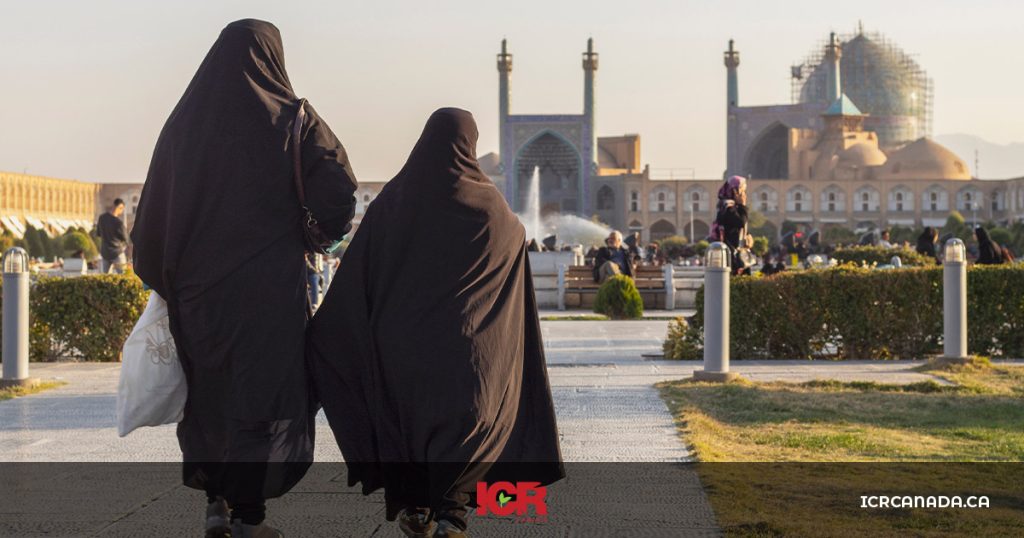Iran sentences tourist to 10 years in prison for possessing New Testament

In a controversial legal case, Hakop Gochumyan, an Armenian Christian, has been sentenced to 10 years in prison in Iran. Despite arguments from his lawyer highlighting the weakness of the case against him, the judge invoked a provision in the penal code allowing for judgments based on "intuition."
Gochumyan, who has been detained since his arrest last summer, was convicted of "engaging in deviant proselytizing activity that contradicts the sacred law of Islam." The charges were linked to his alleged membership and leadership of "a network of evangelical Christianity." However, an informed source indicated that the 35-year-old’s conviction rested solely on his possession of seven Persian-language New Testaments and visits to two Armenian churches and a Persian-language house church during a holiday in Iran.
 Article 160 of Iran’s Islamic Penal Code permits judges to use their "personal intuition" when evidence is insufficient. Gochumyan’s lawyer argued that the judge resorted to this provision due to the lack of concrete evidence against his client. Despite these arguments, Gochumyan was sentenced in February, a decision that was not publicly reported at the time. Last week, he was notified that his appeal had been rejected.
Article 160 of Iran’s Islamic Penal Code permits judges to use their "personal intuition" when evidence is insufficient. Gochumyan’s lawyer argued that the judge resorted to this provision due to the lack of concrete evidence against his client. Despite these arguments, Gochumyan was sentenced in February, a decision that was not publicly reported at the time. Last week, he was notified that his appeal had been rejected.
The sentence was delivered by Judge Iman Afshari of Branch 26 of the Revolutionary Court of Tehran, a judge known for his harsh rulings. Gochumyan's case involved nine others, four of whom, including Gochumyan, received 10-year sentences. One individual received a two-year sentence, while five others were banned from leaving Iran and from residing in Tehran and its neighboring provinces for two years. Additionally, all ten individuals were fined a total of 500 million tomans (approximately $8,000) and stripped of rights such as membership in political or social groups. Confiscated personal belongings included cash, digital devices, and, unusually, some properties.
Examination of Religious Freedom in Iran
Iran often claims to provide religious freedom to its citizens, frequently citing its Armenian and Assyrian Christian minorities as evidence of this purported liberty. However, the sentencing of Gochumyan, alongside Iranian-Armenian pastor Anooshavan Avedian, who is also serving a 10-year prison sentence for leading a house church, reveals the significant limitations imposed on this freedom, particularly regarding the sharing of non-Muslim faiths.
Article 18 of the International Covenant on Civil and Political Rights, which Iran has ratified without reservation, guarantees religious freedoms, including the right to choose, change, and share one's faith. As a signatory, Iran is obligated to uphold these freedoms but has consistently failed to do so.
In 2021, then-head of the judiciary and current president, Ebrahim Raisi, responded to UN experts highlighting the arrests of house church members on "national security" charges by labeling those arrested as members of "enemy groups" of a "Zionist cult." This distinction aims to separate Christian converts, who are not recognized by the state, from recognized Christians of Armenian and Assyrian descent. Recognized Christians are granted a degree of freedom to worship, provided they do not proselytize.
However, non-Armenian or Assyrian Iranians who wish to practice Christianity face severe restrictions. They are prohibited from attending Armenian and Assyrian church services, and these churches are barred from preaching in Persian, the national language, to prevent conversions. Consequently, Christian converts, who far outnumber the shrinking populations of Armenian and Assyrian Christians, have no formal place of worship. They meet in their homes in what are known as house churches.
These house churches, though similar to other groups of Christians meeting to pray and worship worldwide, are outlawed in Iran. Members are routinely arrested and imprisoned on "national security" charges. This systemic repression highlights the harsh reality faced by religious minorities in Iran, particularly those who convert to Christianity.
The case of Hakop Gochumyan underscores the severe restrictions on religious freedom in Iran, despite its claims of providing such freedoms. The reliance on judicial "intuition" in the absence of concrete evidence raises serious concerns about the fairness and impartiality of the Iranian judicial system. The international community continues to scrutinize Iran's treatment of religious minorities, urging the country to adhere to its obligations under international law and respect the fundamental rights of all its citizens.
